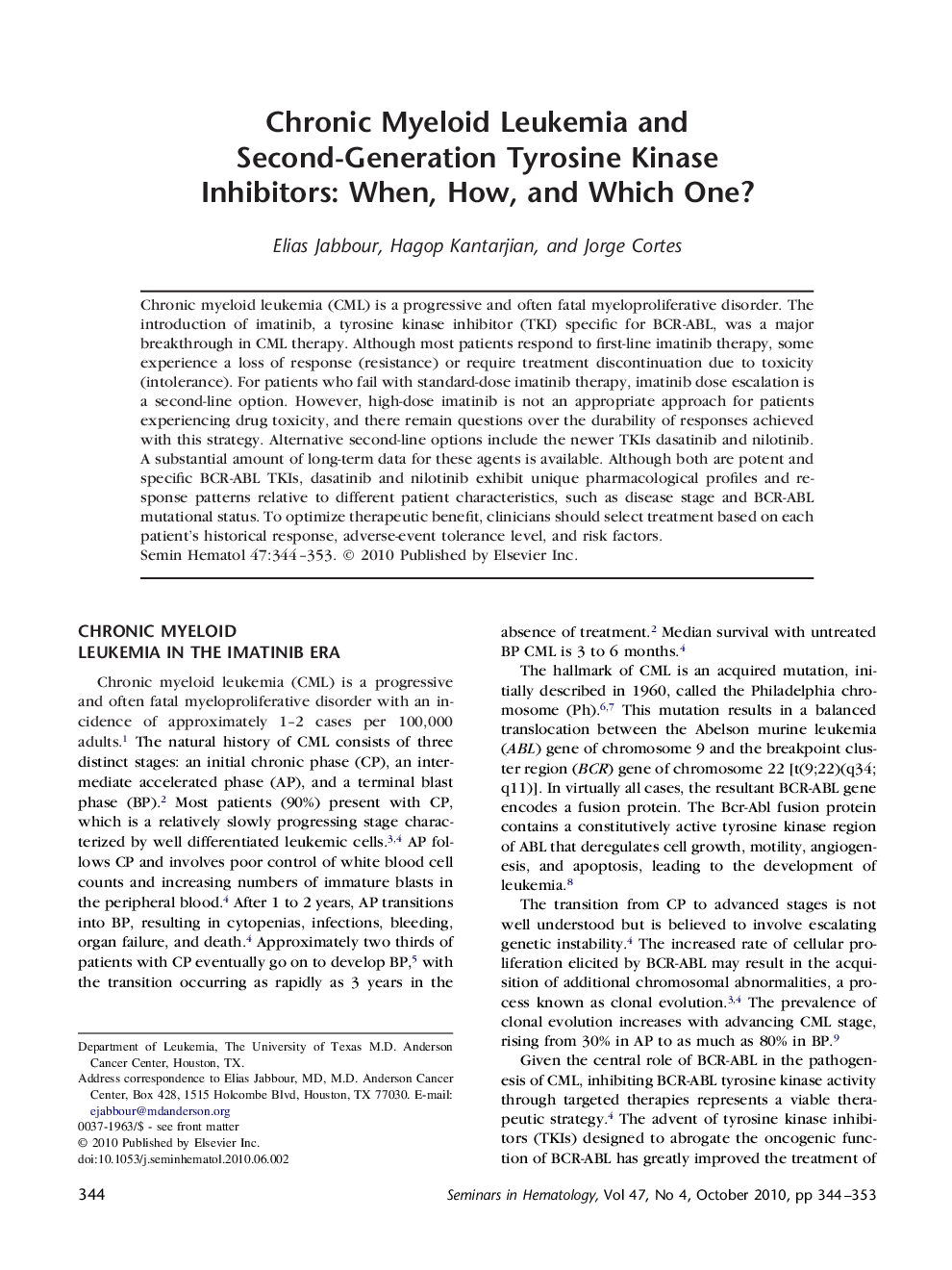| Article ID | Journal | Published Year | Pages | File Type |
|---|---|---|---|---|
| 3333708 | Seminars in Hematology | 2010 | 10 Pages |
Chronic myeloid leukemia (CML) is a progressive and often fatal myeloproliferative disorder. The introduction of imatinib, a tyrosine kinase inhibitor (TKI) specific for BCR-ABL, was a major breakthrough in CML therapy. Although most patients respond to first-line imatinib therapy, some experience a loss of response (resistance) or require treatment discontinuation due to toxicity (intolerance). For patients who fail with standard-dose imatinib therapy, imatinib dose escalation is a second-line option. However, high-dose imatinib is not an appropriate approach for patients experiencing drug toxicity, and there remain questions over the durability of responses achieved with this strategy. Alternative second-line options include the newer TKIs dasatinib and nilotinib. A substantial amount of long-term data for these agents is available. Although both are potent and specific BCR-ABL TKIs, dasatinib and nilotinib exhibit unique pharmacological profiles and response patterns relative to different patient characteristics, such as disease stage and BCR-ABL mutational status. To optimize therapeutic benefit, clinicians should select treatment based on each patient's historical response, adverse-event tolerance level, and risk factors.
